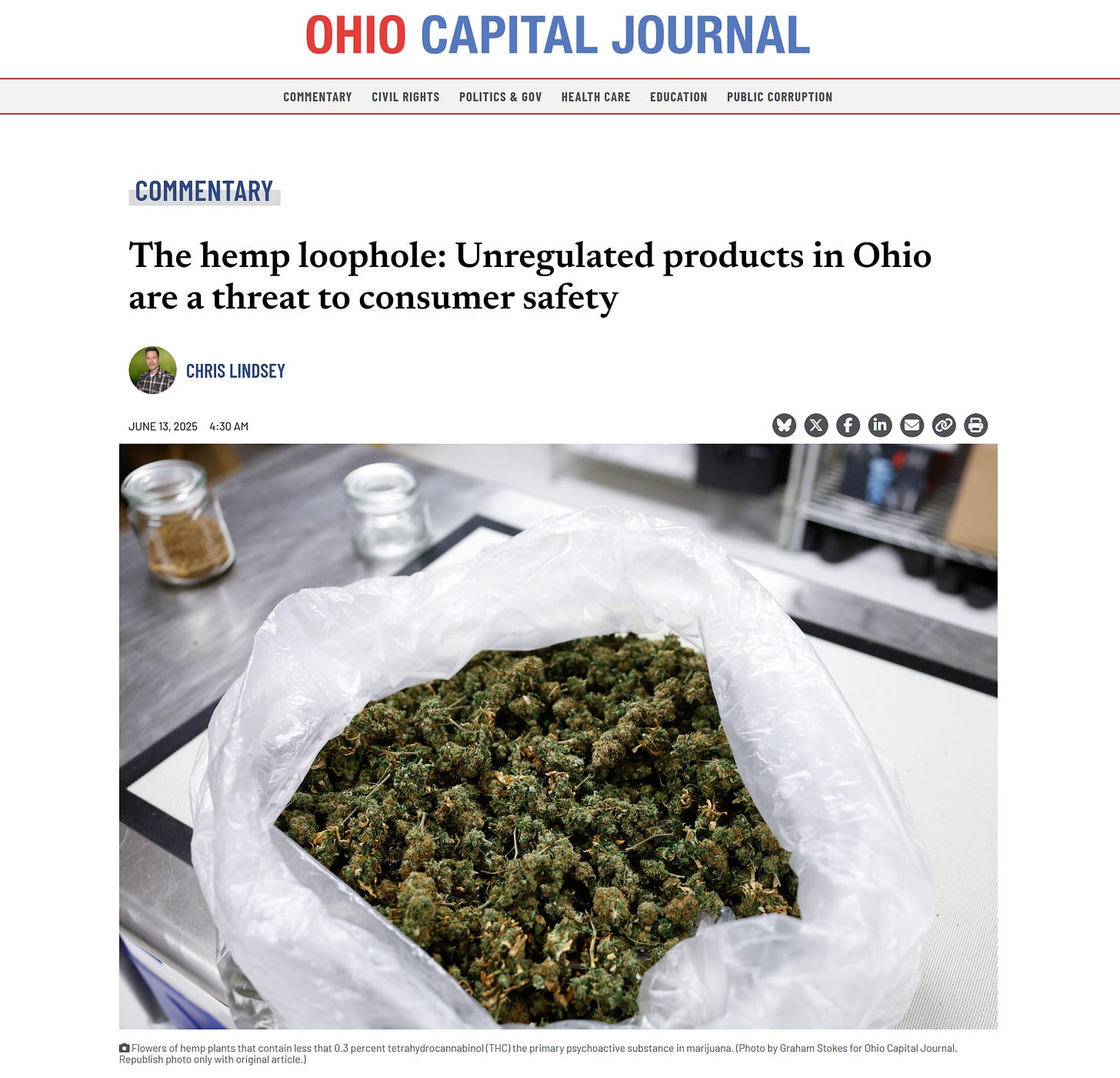Unpacking Abbott’s SB 3 Veto: Motives and Implications
This isn't just about the hemp industry—it’s tied to border tech companies with foreign ties, Silicon Valley, and Chinese synthetic Cannabinoids.
In a not-so-unexpected move, Governor Greg Abbott vetoed SB 3, a bill aiming to ban most hemp products except CBD and CBG for consumer safety reasons. Instead, he called for a special session to regulate it rather than outright banning. He defended his decision by warning that it would criminalize farmers, veterans, and patients legally using cannabis-based treatments. These claims fall flat when he’s letting toxic chemicals from China poison Texas communities.
The Dark Side of the Hemp Industry
The 2018 Farm Bill legalized hemp with less than 0.3% THC, but it opened a Pandora’s box. A booming, unregulated market emerged around synthetic cannabinoids—like delta-8 THC—made by chemically altering imported hemp extracts, mostly from China and India.

These products flood gas stations and smoke shops, often with inconsistent THC levels, unlisted chemicals, and unknown health risks. The FDA has issued warnings, but enforcement is weak. A University of Michigan study found that 11% of high school seniors have tried delta-8 THC.
China’s Expanding Reach into U.S. Farmland
Chinese investors, with ties to organized crime, increasingly control rural marijuana farms in states where cannabis is legal, using these operations to gain strategic footholds in U.S. critical infrastructure.

Oklahoma has shut down over 1,000 illegal pot farms since 2020, most tied to Chinese crime syndicates. Fentanyl, largely sourced from China, compounds the crisis by fueling America’s opioid epidemic by mixing the substance into marijuana.
Greg Abbot isn’t the only Republican playing footsie with the Chinese hemp industry either. In 2014, Congressman James Comer’s hemp pilot program allegedly imported marijuana seeds from China, exceeding legal THC limits. Emails show ties between Comer’s office and his donor, Caudill Seed.
Other Texas conservatives have warned that foreign ownership threatens food security and national sovereignty. But efforts to restrict Chinese purchases of farmland often stall in the Texas state legislature, most likely due to ties between Governor Abbott, Silicon Valley, and Chinese interests. Not to mention, Elon Musk’s ties to the Texas governor. The tech billionaire has embraced cannabis culture, allowing licensed marijuana companies to advertise on Twitter (now X)—a move other social media giants like Meta have yet to match. Also note, Tesla’s supply chain is heavily reliant on China.
Hemp Farms, China, & Human Trafficking
Disturbing reports reveal Chinese migrant workers trafficked into the U.S., trapped on hemp farms under brutal conditions. In 2023, a raid in New Mexico uncovered dozens of underfed, frightened workers forced to labor 15-hour shifts without pay, their passports and phones were confiscated.
These migrants often come through the Southern border via dangerous routes—from China, through Turkey, Ecuador, and Central America—chasing promises of work. Labor agencies then place them on hemp farms funded by Chinese investors. Despite legalization in many states, these farms rely heavily on exploited, undocumented labor, working with hazardous chemicals and no protections.

The technology controlling the U.S.-Mexico border is not purely American. Companies like Israel’s Elbit Systems and Anduril—linked to Chinese and Israeli interests—play key roles in managing who crosses into the United States. Arthur Bloom’s Substack exposed these connections (here and here), raising questions about sovereignty and border security.
In the past, Greg Abbott has come under fire for his controversial handling of migrant issues. How is the governor not aligned with human traffickers when he flew migrants across the country while his Attorney General turns a blind eye to the widespread hiring of undocumented labor by farmers, restaurateurs, and other businesses?
The exploitation of migrant workers and the murky hemp industry highlight the nexus between Texas politics, Silicon Valley, China, and the border.
If you have any tips, you know where to hit me up on X (@DCinTejas) or message me on Substack.
-DeAnna Calderón



